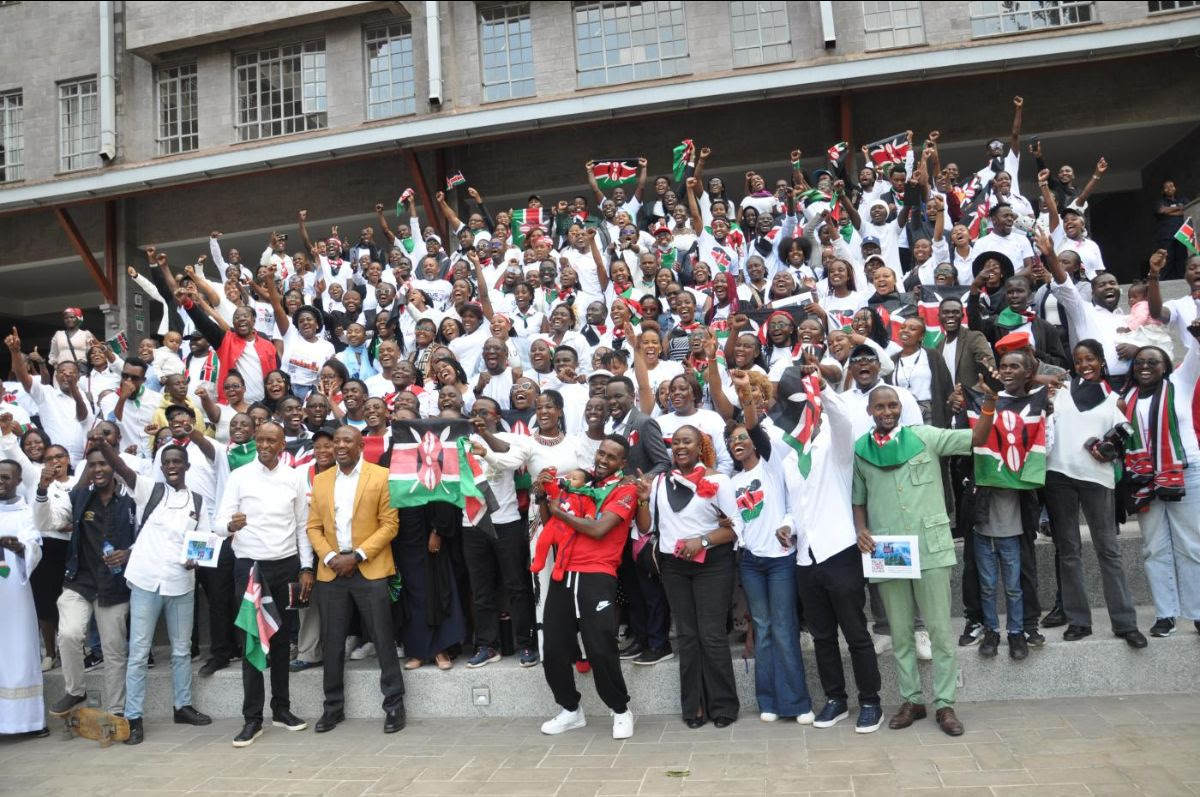The churches' move comes after youth organized a string of demonstrations to demand government action on corruption, unemployment, high taxation, and police brutality, among other issues. Before storming the streets, the youth mobilized through social media. They have marched unarmed, carrying national flags, bottles of water, and mobile phones. “It is a valid call on the government to lead in a way centered on people’s lived realities, more so, the youth,” said Kevin Maina, a Kenyan Anglican church youth leader who advocates for youth, climate justice, and social change. Maina is a member of the World Council of Churches Commission on Climate Justice and Sustainable Development. “The level of accountability on public resources is very low and this continues to bring frustration to a population that can barely take care of its basic needs,” said Maina, adding that churches could continue to hold the government accountable through avenues available to them. “The protests may not stop soon because the government continues to rule with an iron fist…instead of critically engaging the people on issues affecting them.” Youth have also been victims of unexplained disappearances, abduction, and extra-judicial killings, something that the church leaders say must be addressed. Also of concern to church leaders is the violent suppression of protests by riot police and men armed with crude weapons, and the ensuing chaos during which shops and businesses have been looted, innocent civilians attacked, and women raped. For the church leaders, this amounts to a clampdown on the freedom of expression, assembly, and the right to picket. “[We are] deeply perturbed by the growing trend where the state is blatantly, violently denying Kenyans the right to enjoy the right to picket,” said the Rev. Canon Chris Kinyanjui, general secretary of the National Council of Churches of Kenya. On 7 July, this pattern of violence and brutality reoccurred during protests called to mark the 35th anniversary of Saba Saba (7,7) a day when Kenyans celebrate the birth of constitutionalism, multiparty democracy, and the rule of law in the country. At least 30 protesters died – most killed by the police, with hundreds of others injured. “We demand, in line with the constitution and the National Police Service Act, that security agencies provide adequate security to all peace and unarmed demonstrators, ensuring that every Kenyan enjoys the rights and freedoms,” said Kinyanjui. On June 25, another 16 people died in a protest called by the youth to mark the first anniversary of the anti-tax demonstrations last year, which left at least 60 people dead. In an attempt to break up the massive demonstration, the police used live and rubber bullets, water cannons, and tear gas. Also seen attacking the youth protestors were men armed with whips and clubs. According to the Kenya Human Rights Commission, 115 people have died and hundreds have been injured in the protests since June last year. Meanwhile, the Interreligious Council of Kenya, a grouping of Christians, Muslims, Hindu, and Buddhists, warned that the dominant political elite, fighting to acquire, protect, and consolidate political and economic power, was tearing apart the country with unprecedented tension, violence, and killing of innocent citizens. “Kenya is in a dangerous and bad state…we cannot continue like this,” said Catholic Bishop Willybard Lagho, the council’s chairman, in a statement on July 9, which called on the president to restore public trust. “Politicians must also be compelled to immediately cease using religion and negative ethnicity for political mobilization.” | 



No comments:
Post a Comment